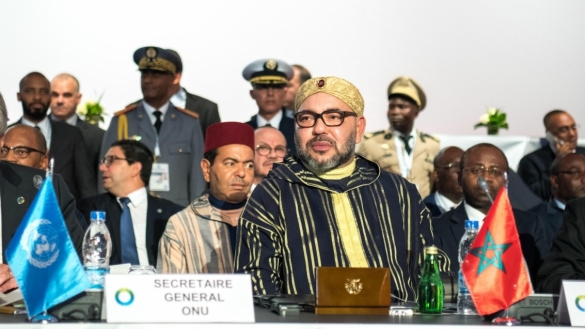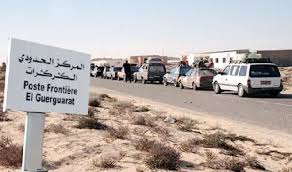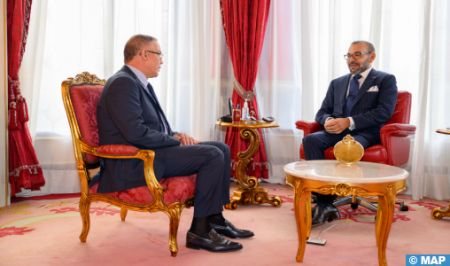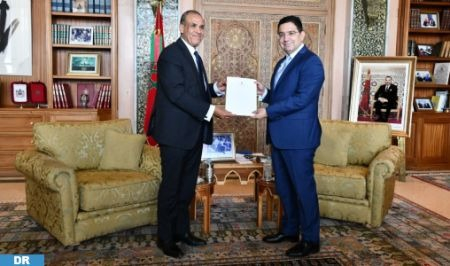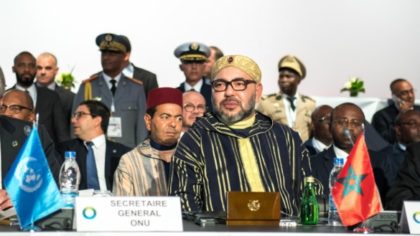 King Mohammed VI of Morocco has outlined a new approach to migration that should be perceived in an inclusive, positive light as is the case in Morocco, pointing out that as the 21st century will be a century of large-scale human intermingling, we should refrain from giving any ideological, emotional or even xenophobic twist to the discourse on migration.
King Mohammed VI of Morocco has outlined a new approach to migration that should be perceived in an inclusive, positive light as is the case in Morocco, pointing out that as the 21st century will be a century of large-scale human intermingling, we should refrain from giving any ideological, emotional or even xenophobic twist to the discourse on migration.
This came in a message the Monarch addressed to the 5th African Union-European Union summit held in Abidjan.
The king deplored that migration, which was connected with commercial travel and religious pilgrimages, or was the consequence of conflict and pandemics, “has systematically been perceived not as a source for solutions and opportunities, but rather as a threat and a source of desperation”.
“In today’s world, it has taken on a negative connotation, since it is being associated with drugs and other trafficking – even with the damaging effects of climate change. To put it simply, in the collective mind today, immigration is associated with such scourges as poverty, precariousness, instability – even death,” he pointed out.
In his capacity as the leader in charge of the migration issue within the African Union, he announced that he would submit proposals to the next AU Summit in order to chart a real African Agenda on migration, whose outlines were submitted in a preliminary note to the AU presidency during the previous African summit in July 2017.
The preliminary note outlined the steps that should be taken to tackle migration notably through adopting national policies, improving sub-regional coordination, and harnessing continental and international efforts to ensure an adequate management of migration.
And in his message to the Abidjan summit, the Monarch in-sisted that “this full-fledged Agenda requires that we speak with one African voice, in accordance with our own work plan”. “Given the unprecedented migratory flows we are wit-nessing, that Agenda is more important than ever. It involves four levels of action: national, regional, continental and inter-national,” the sovereign explained.
In this regard, four baseless myths need to be dispelled: Afri-can migration is not mostly intercontinental, it is primarily in-tra-African: out of every 5 African migrants, 4 remain in Afri-ca; irregular migration does not predominate; it accounts for a mere 20% of international migration; migration does not impoverish host countries: 85% of migrants’ earnings remain in host countries; and, lastly, I would remind you that there is no longer any distinction between migrant-emitting, transit and destination countries, the King went on to say.
Under this agenda, the Moroccan Monarch insisted, African countries would shoulder their responsibilities in terms of guaranteeing the rights and dignity of African migrants on their soil, in accordance with their international commitments, thus doing away with the shameful, inhuman practices inher-ited from a bygone era.
“Today, a new vision is needed: we ought to turn immigration into a subject of peaceful debate and constructive exchange,” the King insisted.
Morocco was one of the first countries of the South to adopt a genuine solidarity-based policy regarding sub-Saharan migrants.
The policy, rooted in humanitarian values, was launched in 2014 and benefited notably Sub-Saharans who make the bulk of migrants within Morocco.
And so far, nearly 20,000 migrants submitted to Moroccan authorities their requests to gain residency cards as part of the second phase of a regularization campaign that was launched last December upon directives from King Mohammed VI after the success of the first phase that saw 25,000 migrants gain residency status.
